Small business scaling solutions are essential for entrepreneurs ready to transition from survival mode to sustainable growth. While starting a business is a milestone, scaling it effectively requires thoughtful planning and the right tools. Scaling isn’t just about increasing revenue—it’s about expanding capacity, improving operations, and sustaining momentum without compromising quality or customer satisfaction. Scaling too quickly without a solid foundation can lead to burnout, cash flow issues, or operational chaos, which is why tailored small business scaling solutions are critical for long-term success. These solutions guide businesses through strategic steps that align with their resources, goals, and customer needs.
Building a Scalable Business Model
One of the first small business scaling solutions involves evaluating and building a scalable business model. A scalable model allows your business to grow without a proportional increase in costs. This includes refining your value proposition, automating processes, and shifting from high-touch services to productized or subscription-based offerings when appropriate. Entrepreneurs should assess how much time and resources are required to deliver their product or service and find ways to streamline or replicate delivery at scale. A scalable model is one that can handle increased demand efficiently while preserving profitability, which is why it serves as the cornerstone of successful business growth.
Investing in the Right Technology Tools
Small business scaling solutions heavily rely on leveraging the right technology to automate, optimize, and expand operations. Cloud-based software such as CRM systems, project management platforms, and accounting tools can reduce manual work and increase visibility across departments. These tools help track key performance indicators, manage customer interactions, and ensure timely invoicing and payments. For ecommerce businesses, platforms like Shopify or WooCommerce provide robust features to manage product inventory, customer service, and order fulfillment seamlessly. Investing in technology isn’t just a luxury—it’s a necessity for scaling, as it empowers businesses to serve more customers with fewer resources and greater efficiency.
Streamlining Operations and Processes
Operational efficiency is at the core of effective small business scaling solutions. As businesses grow, they face more complexity in fulfilling orders, managing teams, and handling customer expectations. By analyzing current workflows and identifying bottlenecks, entrepreneurs can implement process improvements that reduce delays and waste. Standard operating procedures (SOPs) play a vital role in this by creating consistency and clarity in daily tasks. Whether it’s automating email marketing, outsourcing non-core functions, or optimizing inventory management, streamlined processes enable businesses to operate smoothly at higher volumes without sacrificing quality or increasing labor costs unnecessarily.
Hiring and Building the Right Team
Scaling a business requires more than a solo effort, and small business scaling solutions emphasize building the right team to support growth. Hiring employees who align with your vision and culture can multiply productivity and allow business owners to delegate critical functions. Whether it’s bringing on a marketing specialist, sales manager, or operations lead, each new hire should contribute to scalability. In the early stages, leveraging freelancers or virtual assistants can provide flexibility without the financial burden of full-time staff. Clear role definitions, ongoing training, and performance tracking ensure that your team scales alongside your business and adapts to evolving demands.
Strengthening Customer Retention Strategies

Customer retention plays a pivotal role in small business scaling solutions because retaining an existing customer is more cost-effective than acquiring a new one. As a business scales, maintaining personalized service and strong relationships can become challenging, but it’s essential for long-term profitability. Implementing loyalty programs, gathering customer feedback, and providing proactive support help keep clients engaged and satisfied. Email marketing campaigns, referral incentives, and subscription models are also effective ways to increase lifetime customer value. Scalable retention strategies ensure that your growth is not solely dependent on constantly finding new customers, creating a stable revenue foundation during expansion.
Securing Scalable Funding Options
Access to capital is another cornerstone of effective small business scaling solutions. Scaling often requires upfront investment in staff, technology, inventory, or marketing, which may exceed current cash flow. Business owners must explore scalable funding options such as small business loans, lines of credit, venture capital, or crowdfunding to support their growth initiatives. Preparing detailed financial forecasts and business plans helps increase credibility with lenders and investors. Alternative funding sources like revenue-based financing or peer-to-peer lending platforms may also be suitable depending on the business model. The goal is to find financing that supports growth without compromising control or creating unsustainable debt.
Expanding Market Reach Strategically
To support scaling, small businesses must look beyond their current customer base and explore new markets. Small business scaling solutions often include strategies for expanding market reach such as geographic expansion, targeting new customer segments, or adding new distribution channels. Digital marketing plays a key role here, with social media advertising, SEO, and influencer partnerships enabling businesses to reach wider audiences. Collaborations with complementary businesses or entry into marketplaces like Amazon and Etsy can also drive growth. Strategic expansion should be data-driven, ensuring the demand exists and operations can handle the increase without overwhelming the business infrastructure.
Creating a Strong Brand Presence
As small businesses scale, maintaining a consistent and compelling brand becomes even more important. Small business scaling solutions stress the need for cohesive branding across all platforms—website, social media, packaging, and customer communications. A strong brand builds trust and makes a business memorable in increasingly competitive markets. Storytelling, visual identity, and customer experience all play into brand perception. Investing in content marketing, PR, and community engagement helps build authority and emotional connection with audiences. A scalable brand strategy ensures that as the business grows, the brand remains recognizable and continues to resonate with both new and existing customers.
Tracking Performance and Adapting to Growth
One of the most overlooked yet crucial small business scaling solutions is continuous performance tracking and adaptability. Growth isn’t linear, and scaling introduces new challenges and learning curves. Businesses must track key performance metrics like revenue per employee, customer acquisition cost, conversion rates, and churn rate to monitor progress. Regular review of data helps identify what’s working, what needs improvement, and where to pivot. Using dashboards and business intelligence tools gives decision-makers the insights needed to steer scaling efforts in the right direction. Flexibility, combined with data-driven strategy, ensures that businesses not only scale effectively but sustain that growth over time.
Conclusion
Small business scaling solutions provide a structured pathway for growth that helps owners expand without losing control or compromising quality. From building a scalable model and leveraging technology to assembling a strong team and accessing the right funding, these strategies equip businesses with the tools needed for long-term success. The journey of scaling is filled with both opportunities and obstacles, but with the right solutions in place, small businesses can evolve into thriving, competitive enterprises. It’s not just about growing bigger—it’s about growing smarter, with systems, people, and strategies that support sustainable expansion in an ever-changing marketplace.
